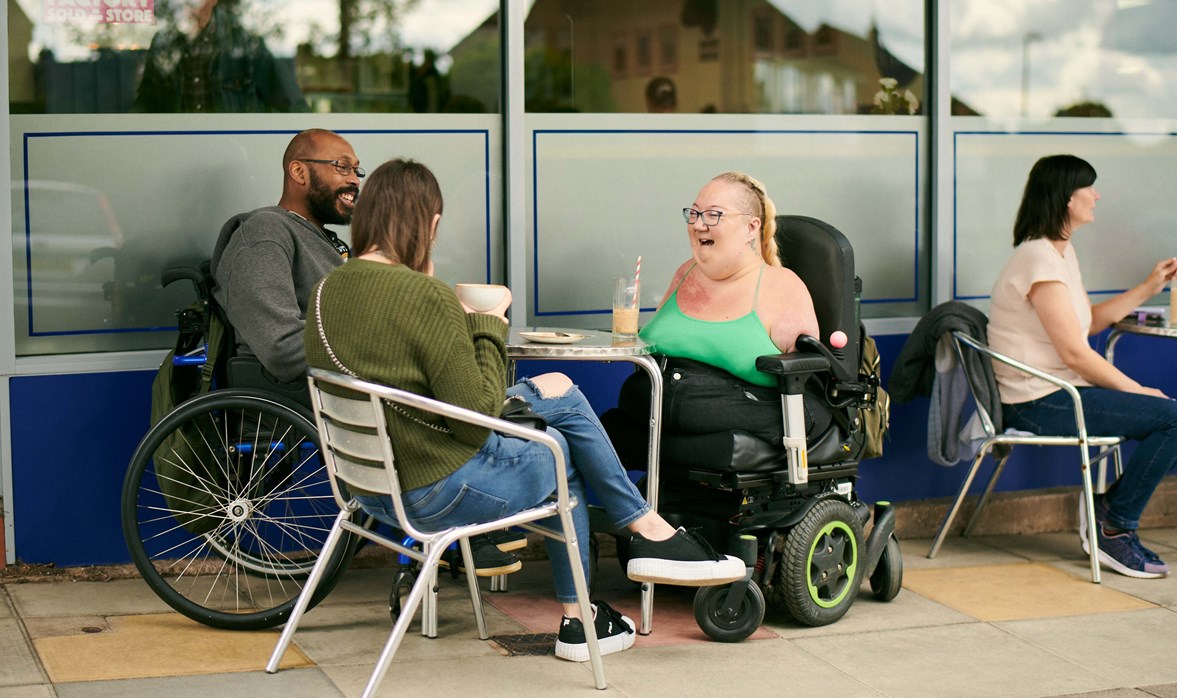Today is Rare Disease Day, observed on the last day of February around the globe.
It highlights rare conditions and improves access to treatment and medical representation for individuals and their families. A condition is classed as “rare” if it affects 1 in 2000 people or less.
Tina, 39, from Coventry, was born with quad amelia (meaning without limbs) and believes she is the only person in the UK to have the condition.
Although she sometimes describes herself as ‘unique’, she is keen to stress she lives a very ‘normal’ life. Just don’t confuse ‘normal’ with ‘boring’ - Tina rode her first horse at two years old!
With a Motability Foundation grant towards her wheelchair accessible vehicle, her adventures continue. We asked Tina what it means to her to live with a rare condition:
What does having quad amelia mean to you?
My parents never made me feel like I was different, which was nice. But, because I was unique, there has always been quite a bit of interest in me.
What was your childhood like?
I grew up in the countryside and we got a farm when I was ten. It was the best thing ever, waking up and seeing the horses and chickens out of the window. I’m a massive animal lover and have been riding horses since I was two. I got my first saddle, which was like a bucket, when I was three. I used to go on sporty holidays, doing canoeing, or abseiling in my chair. And I was really good at skateboarding.
What do you wish people knew about you?
People who assume things annoy me. Also, when people feel sorry for me, there is no need. I lead a better life than them half the time! No one should be pitied.
I know I am different, and I do say I am unique - I like being unique - but I want to be seen as a normal woman. It is patronising being called inspirational too. It’s not inspirational just to get up in the morning, go about my daily life. I get it – but it’s one of my pet peeves.
People do look at me, but I’d rather they ask questions than stare. Children are innocent, they ask questions. If the mum or dad start pulling them away, I tell them not to. Ask me whatever you want, I like that.
As a wheelchair user, what could be improved for accessibility?
More temporary ramps. There are still shops and restaurants in Birmingham I can not access because of steps. Concerts too. There are things I’ve wanted to see but couldn’t because old buildings don’t have lifts. I get it, but it’s frustrating.
Is it important to have carers you connect with?
I am lucky, mine are really good friends. One of the first carers I employed, I then employed her mum and her sister, then her auntie, so it was a real family affair. They are with me 24 hours; we go on trips together and their kids called me Auntie Tina when they were little.
Other than your powerchair, what other equipment do you find useful?
I have a lift in my house to get up to my bedroom, and a snazzy bath that goes up and down and plays music, but I don’t like relying on equipment. I travel a lot and can’t always take things with me, so I want to be able to manage without.
Proud to be creating awareness
We could not do what we do, or make as much impact as possible, at Motability Foundation without listening to or learning from the experiences of disabled people.
We value everyone’s unique qualities and celebrate having a diverse and inclusive culture where everyone feels they can be their authentic selves, no matter their age, ethnicity, religion, gender identity, sexual orientation, disability status, neurodiversity or otherwise.
We’re proud to celebrate differences and create awareness throughout the year.

